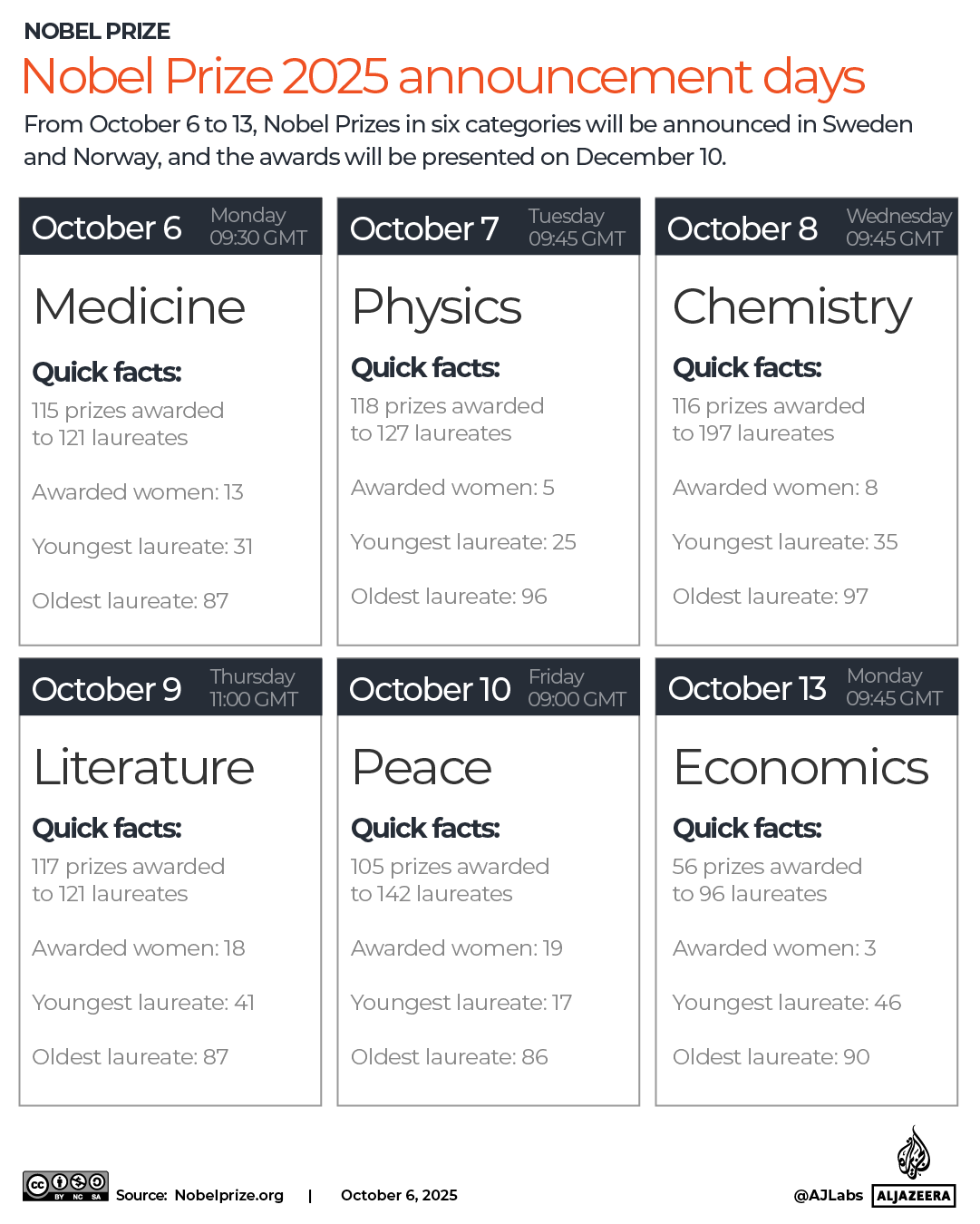The Nobel Committee announced the winners of the 2025 Nobel Prizes across six categories: Physics, Chemistry, Medicine, Literature, Economics, and the Peace Prize. The most contentious award was the Peace Prize, which sparked controversy after being nominated by US President Donald Trump but ultimately awarded to Venezuelan opposition leader Maria Corina Machado.
In Medicine, Japanese scientist Shimon Sakaguchi and Americans Mary Brankov and Fred Ramsdell were honored for their research on “peripheral immunological tolerance,” a discovery critical to advancing therapies for autoimmune diseases such as lupus and multiple sclerosis. Their work focused on T-helper cells and the FOXP3 gene, which regulate immune responses to prevent attacks on the body’s own tissues.
The Physics Prize went to Briton John Clark, Frenchman Michel Devore, and American John Martinis for their breakthrough in “quantum tunneling at the macro level” and the development of quantum computing technologies. Their experiments with superconductivity in the 1980s laid the groundwork for creating reliable quantum systems.
In Chemistry, Japanese researcher Susumu Kitagawa, British scientist Richard Robson, and American Omar Yagi—whose family fled Jordan as Palestinian refugees—were recognized for pioneering metal-organic frameworks (MOFs), materials with potential applications in water purification, waste decomposition, and medicine.
Hungarian writer Laszlo Krasnahorkai received the Literature Prize for his “convincing and prophetic creativity,” highlighting works that explore dystopian themes and human resilience amid chaos.
The Peace Prize was awarded to Maria Corina Machado for her advocacy of democratic rights in Venezuela, despite facing political persecution under President Nicolas Maduro. The Economics Prize went to American-Israeli historian Joel Mokir, French economist Philippe Agyon, and Canadian Peter Howitt for their research on innovation-driven economic growth.
The Nobel Prizes, funded by the Swedish State Bank, continue to highlight global advancements in science, culture, and conflict resolution.




